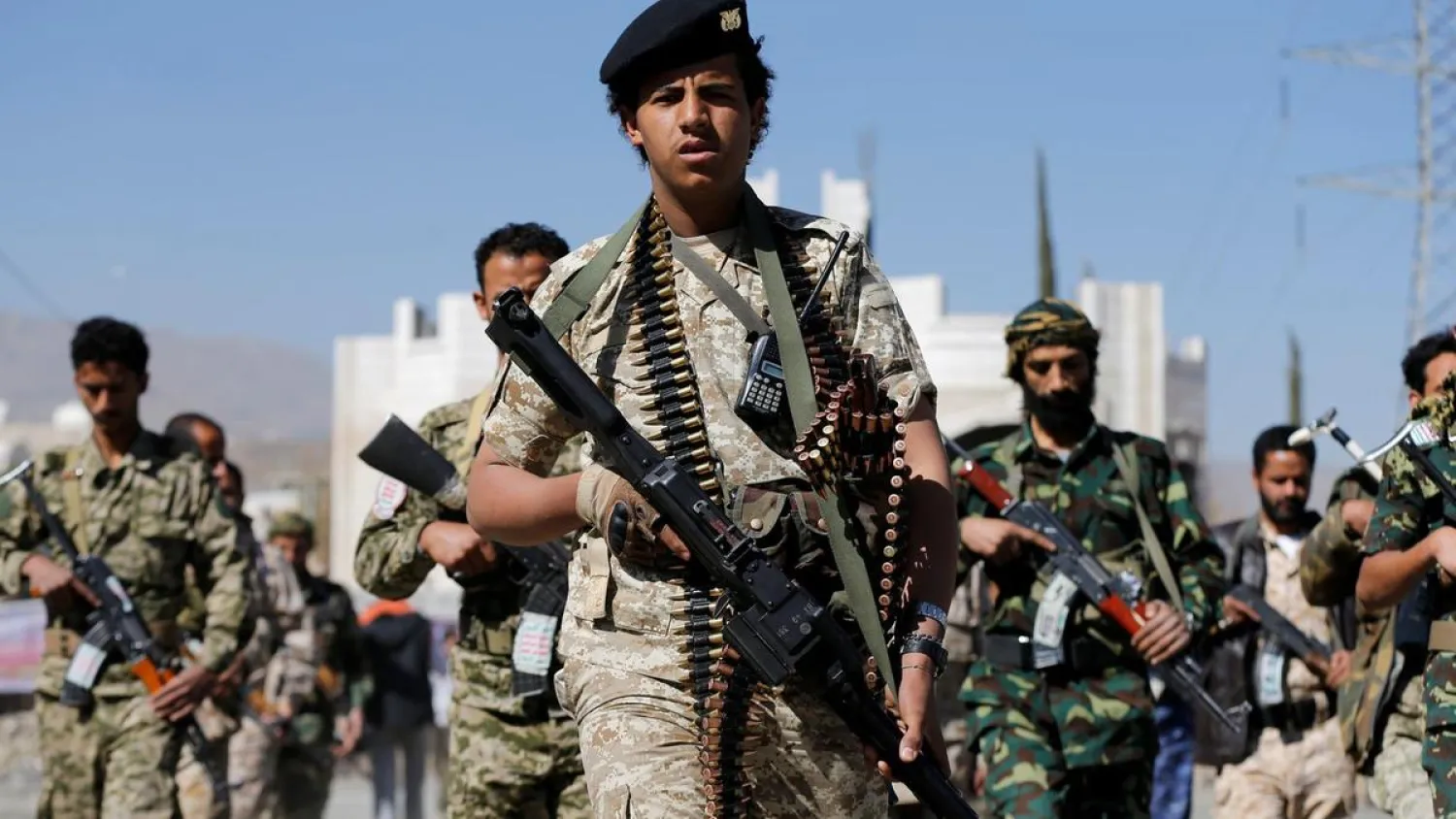Aside from looting Yemen’s public funds and hard currency reserves at the central bank in Sanaa, Houthis militias have imposed new laws and regulations that further hamper the economy.
This week, Houthis referred more than 419 leading businessmen in various economic sectors to the group's public prosecution for mass trials to force them to pay huge sums.
These measures included all the commercial, oil, economic and service sectors. The group accuses businessmen in these sectors of not paying tax and zakat money.
Houthi official at a branch of Central Bank, under the militias control in Sanaa, recently banned local banks and exchange companies from trading with about 700 companies and businessmen, after they have been blacklisted for not paying royalties required to finance war effort.
The group has set a deadline of one week for the banking authorities to disclose the various financial transactions of these trading entities.
Houthi militias ignore the magnitude of the catastrophe caused by their coup against legitimacy, and the ramifications of the systematic destruction of the economy, suspension of business interaction and investment projects, amid their domination of the country's financial hubs and loyalists' control of the domestic market, especially fuel and food import sector.
Since its coup, the group has forced most traders, importers, businessmen and business owners to pay large sums to finance the war effort and participate in paying for mass media campaign that accompanies the group's celebrations throughout the year.
A merchant and one of Sanaa's well-known businessmen, told Asharq Al-Awsat that he was surprised to find the name of his company on Houthis' list, "although I am committed to paying the taxes, zakat and all amounts determined by the law," he added.
"I think the purpose of Houthi's crackdown on so many traders and business owners is an attempt to extort money to get more royalties," said the trader, who declined to reveal his name for security purposes.
The businessman was surprised by militia leaders' insistence to impede the private sector. He wondered: "What do they want from us other than paying legal fees and royalties every now and then?"
He admitted that one of the militia leaders phoned him a few weeks ago and forced him to pay 50 million riyals for the group's war effort, which according to him, is not the first time.
Houthis recently imposed 100 percent customs duties on goods imported via land and sea ports controlled by the legitimate government, which means increasing prices and further impeding consumers.
Militias also seek to issue new laws and amend previous laws of the financial and economic sectors, allowing them to provide an alleged legal pretext to increase taxes and fees on services in institutions under their control.









